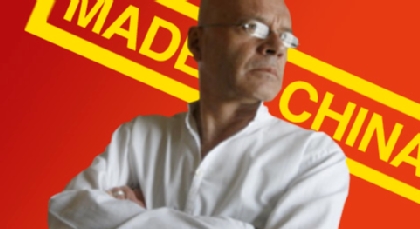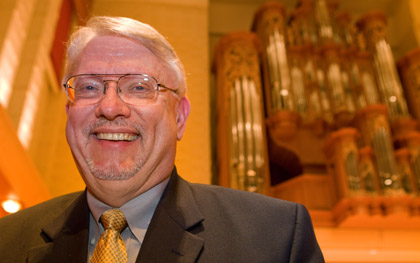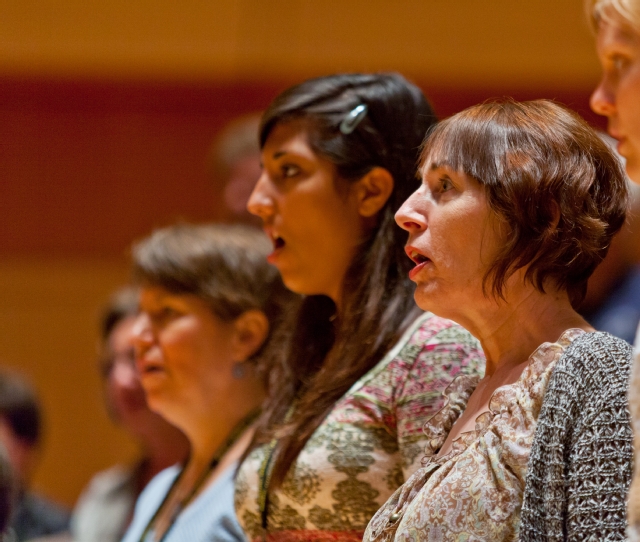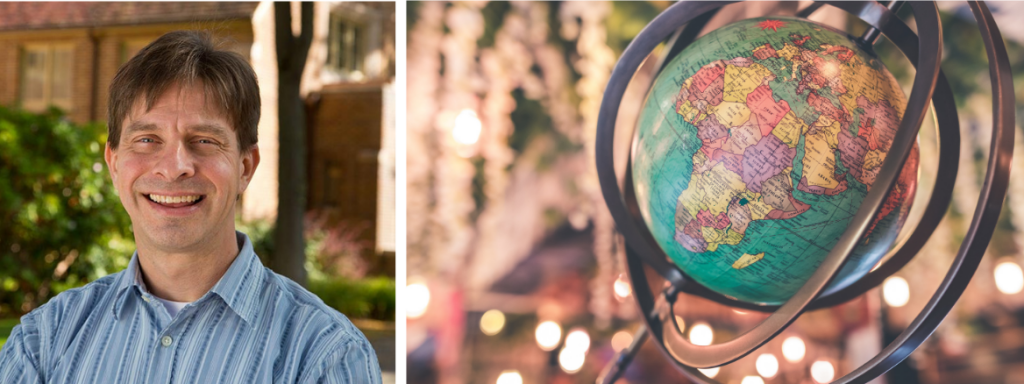Page 224 • (3,652 results in 0.069 seconds)
-

April 22, 2010 What will the world look like when China is calling the shots? By Barbara Clements Even by the most conservative estimates, China will overtake the United States as the world’s largest economy by 2027 and will climb to the position of world economic leader by 2050. Journalist Martin Jacques spoke on how the world will change with China as a dominant power Full repercussions of China’s rise-for itself and the rest of the globe-have been little explained or understood until
-

April 1, 2010 Finding a special place at PLU By David Robbins It all started so simply, yet signs were there. In the spring and summer of 1969, I was looking for my first college teaching job as I completed my graduate music degree at the University of Michigan. Like so many seeking their first real job, I had cast a wide net, applying for any and all positions that vaguely aligned with my interests, training and abilities. One such position was at a small Lutheran university in the Pacific
-

statement emphasizes resistance, empowerment, and persistence. Professor Marcus believes that the interdependency among those three values results in “actively working for change” by empowering individuals to use their voices and to support one another. Professor Marcus says, “I know it’s a cliché that all politics is local, but I felt like we had to start close to home. That’s why we started in Gig Harbor.” In March 2017, Heidi Mund, an anti-Islamic proponent, was invited by a local Tea Party group
-
valued sustainability when she came across a sculpture. Shaped like a triangle, it was made from various recycled items and had lights powered by a solar panel. “I was amazed at the fact that the population uses so many plastics, and the amount of recycling bins are far and few between,” she wrote. “However they are available and way easier to find than in the Houston airport.” In order to make a difference – and avoid having recyclable garbage lining the street, like in São Paulo – each American
-
at a street market than out of a catalogue, where prices were jacked up by 300 percent. Her staff were “voracious” learners, and quickly trained up. But she often found that doctors and nurses went right from the American equivalent of high school, straight into a specialty for the next six years. There was very little general medical or science training. There were also the cultural differences. Doctors were expected to take one look at a patient, and know instantly what was wrong. To simply say
-

July 27, 2012 In the foreground of this picture is Audrey (Coryell) Okuda’78, who came all the way from Japan for the reunion. Next to her is Dominique Lopez Piper, who is singing for her mom, Mary (Piper) Lopez Garelli ’81, who can no longer sing due to a medical condition. (John Froschauer, Photos) Choir of the West reunion and benefit concert draws alumni from across the globe By Barbara Clements University Communications For Audrey (Coryell) Okuda ’78 traveling 5,000 miles to be with her
-

, rather than just for monetary means. What is the unique perspective that you bring to the internship? I am an Asian American woman who grew up in Montana, which is a Republican state. I definitely think there are unique experiences there. I am the only daughter in a household with three brothers. There is a lot that can be derived from that experience. Coming out here to Washington, and meeting, speaking, and connecting with people who hold many different beliefs than I do, my thought processes have
-

think that is all I can ask for. What skills are you gaining from this experience? I definitely feel like my professional development has gone up quite a bit in terms of what it means to work in a professional setting, and how to hold myself to a certain standard in a working way rather than an academic way. I definitely think that has been a bit of a struggle – shifting from being a student to “this is your job.” I’ve been trying to work on my time management skills, but it is a little rough.What
-

Finding a special place at PLU Posted by: Mandi LeCompte / April 21, 2010 April 21, 2010 By David Robbins It all started so simply, yet signs were there. In the spring and summer of 1969, I was looking for my first college teaching job as I completed my graduate music degree at the University of Michigan. Like so many seeking their first real job, I had cast a wide net, applying for any and all positions that vaguely aligned with my interests, training and abilities. One such position was at a
-

preserving the integrity of research through more accurate replication and validation of results, as well as conducting more studies with one vast, rich data set. Inclusion of international participants and easier collaboration with colleagues across the globe also advance science. The Role of Students For years, Dr. Grahe recognized that undergraduates are uniquely positioned to contribute to science in meaningful ways. “The era of meta-science using crowdsourcing has arrived,” he explains. “Imagine
Do you have any feedback for us? If so, feel free to use our Feedback Form.


